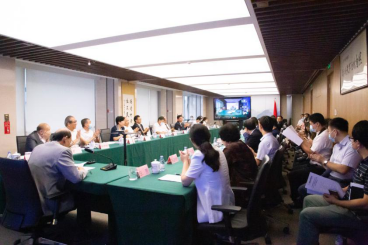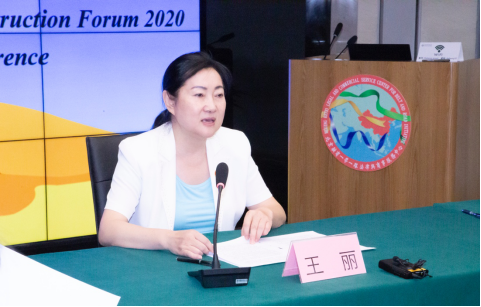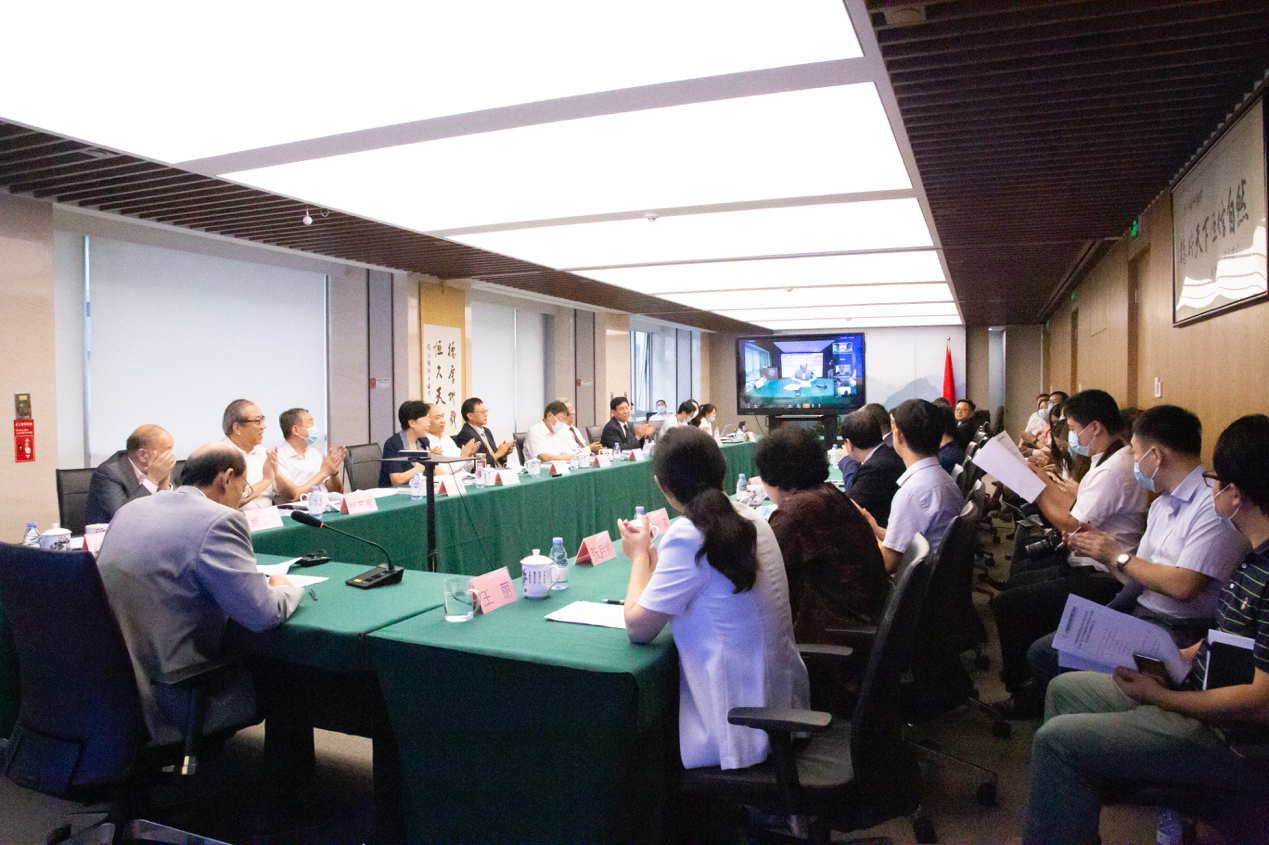
Photo: Attendees from both online and offline attended the Fifth Belt and Road Services Capacity Construction Forum.
BEIJING, Sept. 8 (Xinhua) -- The Fifth Belt and Road Services Capacity Construction Forum was held on Monday during the ongoing 2020 China International Fair for Trade in Services (CIFTIS) in Beijing.
At the forum, attendees exchanged views on the services capability building under the Belt and Road Initiative (BRI), especially on the topic of how mediation as an important way for dispute resolution to help enterprises better resolve disputes under the BRI.

Photo: Dr. Wang Li addressed at the forum.
Established in 2016, the Beijing Retio Legal and Commercial Service Center for Belt and Road Initiative, has developed an online mediation system and launched 61 mediation offices within China and beyond, contributing to solving commercial disputes during cooperation among the Belt and Road countries, according to Wang Li, director of the center.
China is a country with a long history in terms of mediation as Chinese people believe that harmony brings wealth. Mediation, compared to arbitration and litigation, is less time-consuming, more cost-effective and unfolds in a friendly atmosphere. Therefore, mediation has become one of the most popular dispute resolution methods worldwide, said Zhang Sujun, vice president of China Law Society.
Zhang's view was also echoed by other experts from abroad and they believe that mediation has become an important way for the international commercial dispute resolution and some countries have introduced related laws to support the mediation involvment for dispute resolutions.
A new COVID-19 Bill has been passed in the lower House of Representatives in the Malaysian Parliament, recommending the use of mediation to resolve COVID-19 contractual disputes, according to Jeff Leong, co-chair of the Belt and Road Initiative Standing Committee of the Law Association for Asia and the Pacific (LAWASIA).
Rebecca Maduro, a professional mediator from Brazil, said that the mediation law in Brazil is in line with the Model Law on International Commercial Mediation issued by the United Nations Commission on International Trade Law (UNCITRAL), covering confidentiality, impartiality of mediators, authority of mediators, independence of mediators, etc.

Photo: The Beijing Retio Legal and Commercial Service Center for Belt and Road Initiative signed an agreement with Lao Chinese Chamber of Commerce to set up the first mediation office in Laos.
During the forum, the center inked an agreement with Lao Chinese Chamber of Commerce to launch the first mediation office in Laos, a way to raise awareness of mediation in Laos for better implementation of the projects under the BRI.
About 100 attendees, including government officials, representatives from mediation center global offices and scholars from renowned universities, participated in the forum both online and offline.
(Edited by Li Shimeng, Hu Pingchao with Xinhua Silk Road, lishimeng@xinhua.org, hupingchao@xinhua.org)




 A single purchase
A single purchase









